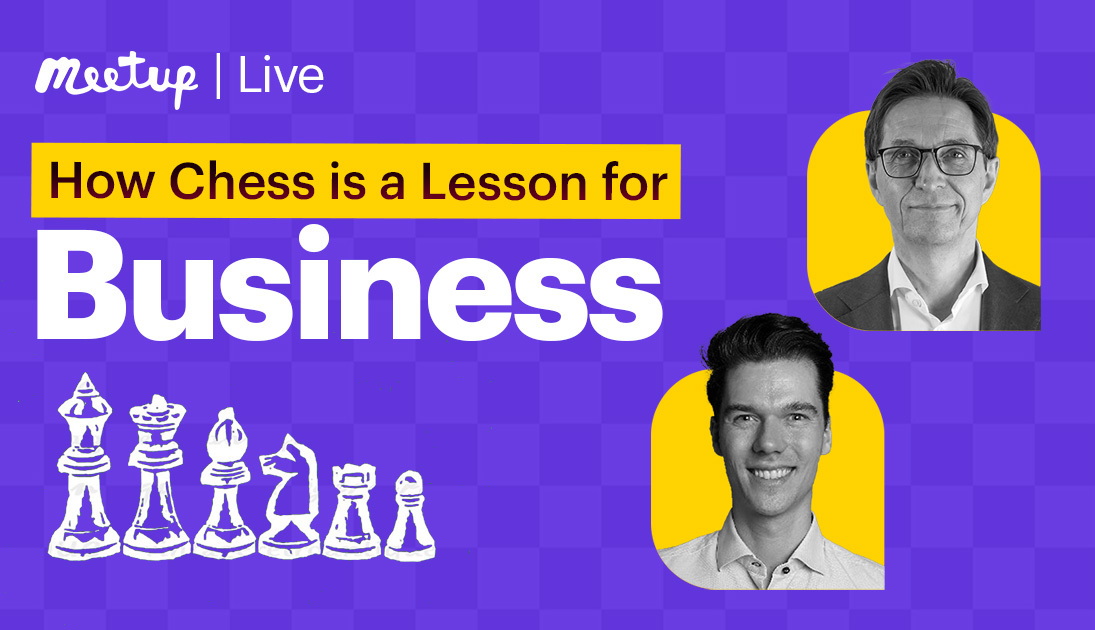Chess is an ancient game of strategy with infinite possibilities. It’s also a practice in changing perspective to predict the behavior of another person. In this Meetup Live event, Chess.com joined Meetup to discuss how playing this rewarding game can benefit your career.
In this recent Meetup Live event, Sebastian J. Kuhnert, Vice President of Business Development at Chess.com, and chess Grandmaster Stefan Kindermann spoke about taking lessons from the chess board to the board room. They discussed how intuition, a key aspect of the sport, is a sense that you can improve over time. Anticipating your opponent’s move is a masterclass in empathy, and a skill that can make you a better colleague, manager, and entrepreneur. They also shared how advancements in artificial intelligence have shaped chess, and how these interventions mirror shifts happening in the business world.
Main Takeaways on Chess and Business
- Like chess, intuition is a key aspect of the decision-making process in matters of business. Our intuition guides us in the beginning of thinking through options. Then given there is enough time and resources, we do some analysis to try and meet goals. Pairing good intuitions with rational thinking is essential for success.
- Chess is an excellent exercise in empathy. The fact is, you don’t know with certainty what your opponent will do. Playing chess well requires switching perspectives and seeing the world through the eyes of the person you’re playing. Our principle of chess thinking is that your ideas must work against maximum resistance. To do this, you must understand what maximum resistance is. That means you have to anticipate the best response your opponent can make and counter it.
- Three lessons that chess can teach you about business:
- First: Learn to develop your intuition through experience
- Second: Innovation is easier by starting with an experiment. Test your hypothesis and learn.
- Third: Leverage the element of surprise.
Top Q&A questions
How much does experience play into intuition versus analysis?
Intuition draws from the experience of our lives. This means you’ll automatically have a strong intuition together with some experience. It must be said that experience only really counts if it’s connected with feedback. The development of any skill requires feedback, so you don’t make the same mistakes over and over. If you have a lot of experience in some area plus get feedback on the quality of your actions and your ideas, this will form at least in most cases a strong intuition.
Resources

Jeanine Mioton is the Senior Manager for Events and Partnerships at Meetup.
Last modified on November 14, 2023









